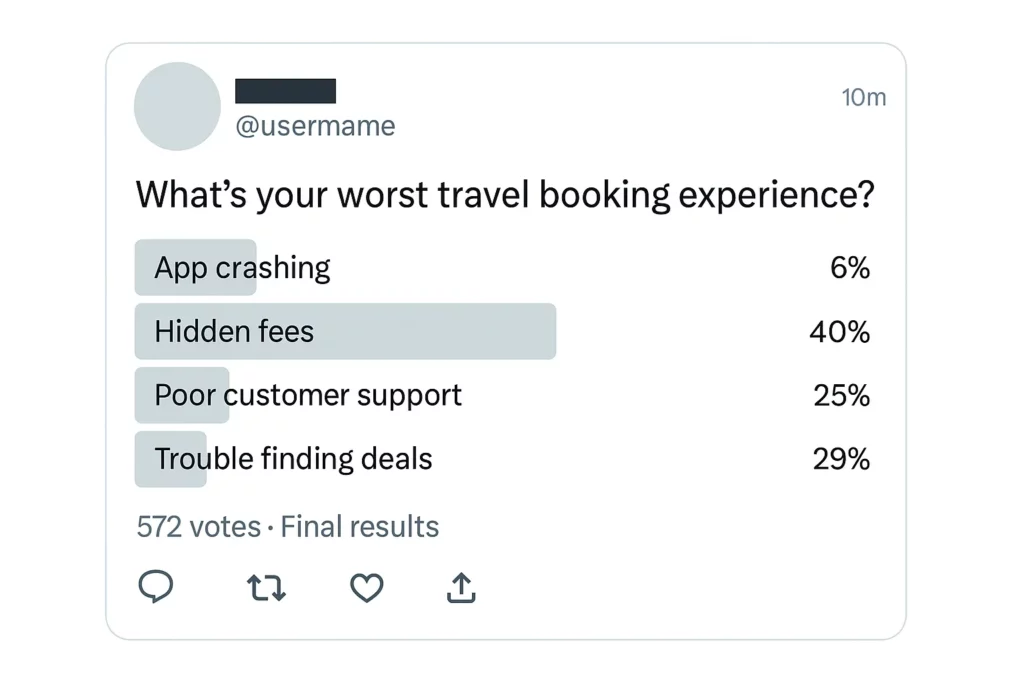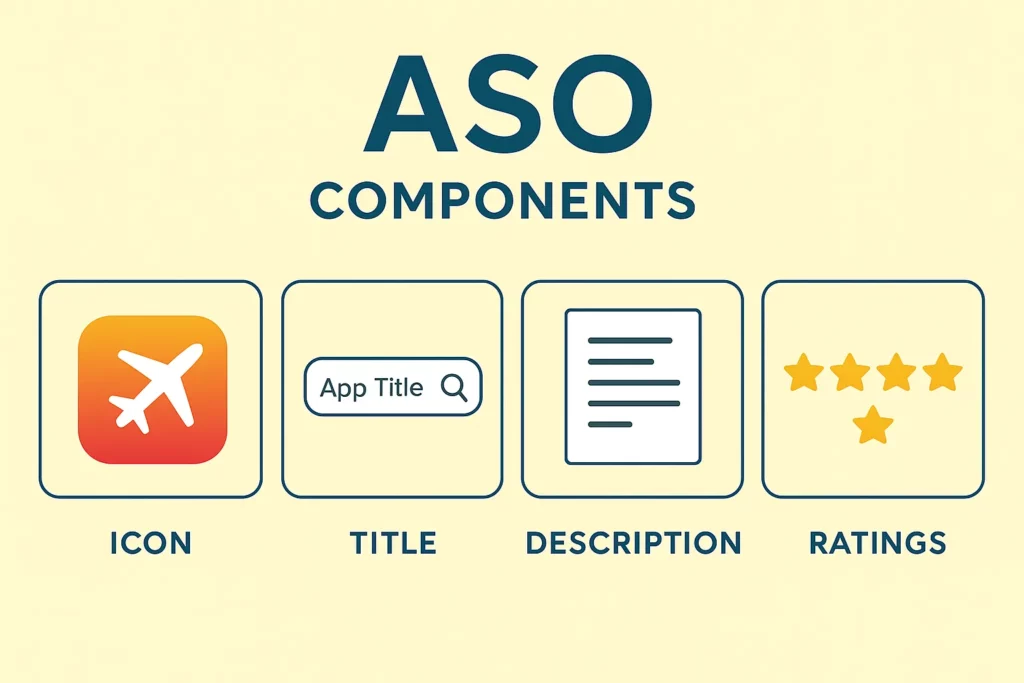Imagine you’ve poured months into crafting the ultimate travel booking app—flights, hotels, holiday packages, even some local adventure tie-ins. You’ve tested it on every screen size, convinced your cousin to help with UI feedback, and bribed your roommate to write fake user reviews (we won’t tell). But… then what?
Here’s the truth: Launching a Yatra clone app without a solid marketing strategy is like planning a dream vacation and forgetting to pack. You can’t just show up at the App Store and hope downloads will magically appear. Nope—it doesn’t work like that anymore.
Whether you’re building the next big travel app or a local discovery engine, your growth depends on how you market it—before and after launch. That’s where the real adventure begins. And if you’re serious about turning your idea into something travelers can’t live without, Miracuves is your trusted co-pilot.
What is Yatra Clone App and How it works
A Yatra clone is a ready-made travel booking platform designed to replicate the features and functionality of the Yatra.com website. It allows users to search, compare, and book flights, hotels, holiday packages, buses, and more. The clone works by integrating travel APIs (like flight, hotel, and bus APIs) to fetch real-time data, enabling smooth bookings and transactions. It includes user-friendly interfaces for customers, admin panels for management, and secure payment gateways to handle bookings efficiently. Businesses use Yatra clones to launch their own travel portals quickly and cost-effectively.
Learn More: Simplifying Travel, One Click at a Time: How a Yatra App Works

Why Pre-launch Marketing is Your First Boarding Call
You wouldn’t go on a trip without checking the weather, booking ahead, or at least Googling “what to pack for Bali,” right? Same rule applies here: before you launch your Yatra-like app, you’ve gotta make noise.
What Pre-launch Marketing Actually Does
- Creates anticipation (FOMO is powerful)
- Attracts your first users
- Builds an email list for retargeting
- Validates your idea with real feedback
- Grows SEO traction before you even launch
Pre-launch Strategies to Put You on the Map
1. Teaser Website With a Clear Value Prop
Design a single-scroll page that explains why your Yatra clone is worth waiting for. Add a countdown, sneak peek of the UI, and a “Join Early Access” CTA.
2. Email Drip Campaigns
Start telling stories. Use newsletters to talk about unique travel features (e.g., budget-friendly trip bundles, instant itinerary creators, or local guides with reviews). Make it warm and human—like you’re chatting with a fellow traveler.
3. Partner with Travel Influencers
Find micro-influencers on Instagram or YouTube who post backpacking or luxury travel content. Send them early access. Ask them to leak it “accidentally.”
Stat: According to Statista, 75% of Gen Z travelers are influenced by social media when planning trips.
4. Run Polls & Beta Surveys
Use polls on Twitter or Reddit like “What’s your worst travel booking experience?” This builds engagement and gives you feature ideas.
Post-launch: Now the Real Journey Begins
Once you’re live, your goal shifts from buzz to usage. This is where you optimize, retarget, and scale.
Must-Have Post-launch Tactics
1. App Store Optimization (ASO)
Craft keyword-rich titles like:
“Smart Travel Deals – Book Flights, Hotels & Trips”
Add compelling screenshots, a preview video, and ask early users to leave reviews with photos.
2. Retargeting Campaigns
Use Facebook/Instagram Pixel and Google Ads to retarget site visitors who didn’t install the app. Try:
“Still looking for that weekend getaway? Book now with 10% off.”
3. Feature Explainers via Email
Got a secret sauce feature like AI-powered travel bundling or group trip coordination? Send out mini-tutorials via email and social. Show it in action.
4. Gamify Referrals
Incentivize users to invite friends by offering wallet credit or travel points. Let them unlock premium features (like early bird discounts or VIP support).
Pre-launch vs Post-launch: Two Sides, Same Mission
| Category | Pre-launch | Post-launch |
|---|---|---|
| Main Goal | Build awareness & collect leads | Drive installs & retain users |
| Channels | Landing pages, email, influencers | ASO, retargeting ads, feature updates |
| KPIs | Waitlist signups, engagement, early feedback | DAUs, retention rate, referrals, revenue |
| Common Tools | Carrd, Mailchimp, Typeform | Firebase, Appsflyer, Amplitude, Branch |
Common Pitfalls to Avoid
- Launching Without Feedback: A Yatra clone without user feedback is like flying blind. Use beta feedback!
- Ignoring SEO Early On: Blog about “Top Travel Apps in 2025” or “Yatra Alternatives” to start ranking.
- Not Tracking Metrics: Without Mixpanel or Firebase, you’re guessing—not growing.

Features Of Yatra Clone Development
The Yatra clone app offers key features like flight, hotel, bus, and holiday package booking, along with real-time search and filter options. It includes secure payment gateways, booking history, e-tickets, user login/signup, and multi-language and multi-currency support. Admin panel features include user management, booking control, commission setup, and content management. It also supports API integration for travel data, push notifications, and reviews/ratings, ensuring a smooth and user-friendly travel booking experience.
Learn More: Top Yatra App Features List for Travel Booking Success
Conclusion
Voice search, AI-curated itineraries, local-first experiences, and sustainability are shaping the next wave. Apps that market these values early will stand out in the crowd.
Build Your Own Travel App with Miracuves
At Miracuves, we help innovators launch high-performance app clones that are fast, scalable, and monetization-ready.
Ready to turn your idea into reality? Let’s build together.
FAQs
1) What makes pre-launch marketing so important for travel apps?
It builds hype, collects leads, and ensures you don’t launch to silence. A must for creating initial momentum.
2) How long should I run a pre-launch campaign?
Start immediately — with Miracuves delivering your solution in just 3–6 days with guaranteed delivery, you can begin gathering feedback, building anticipation, and refining your pitch right from day one.
3) Do I need a huge budget to market my travel app?
Nope. Email marketing, polls, and landing pages are low-cost but high-impact tools if used creatively.
4) What’s the best way to get initial app reviews?
Incentivize beta users with small perks like app credits or shout-outs in your community. Keep it authentic.
5) Should I localize my app from the beginning?
Yes, especially for travel apps. Travelers love seeing listings, prices, and content in their native language.
6) Is ASO different from SEO?
Yes. ASO is for app store visibility, while SEO is for search engines. Both are essential for organic growth.








